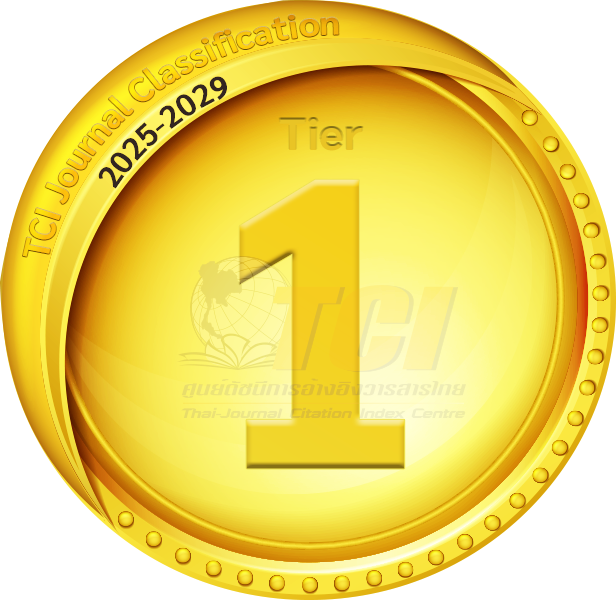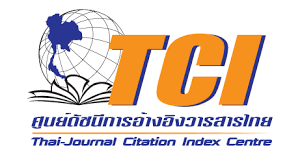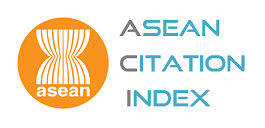Examining the Effect of China Foreign Aid and Diplomacy on Cambodia Good Governance and Growth Stability
- Kakronna Chhin-Eng , Institute of Diplomacy and International Studies, Rangsit University, Pathum Thani 12000, Thailand
- Sasiphattra Siriwato, Institute of Diplomacy and International Studies, Rangsit University, Pathum Thani 12000, Thailand, Corresponding author, E-mail: sasiphattra.s@rsu.ac.th
Abstract
Talking of Foreign Aid, or so-called foreign resource assistance, Cambodia sees reconstruction through the light of foreign aid, which has helped Cambodia to rebuild its economy and reconstructed the entire government structure after the country went through several years of bloodshed because of civil wars and the transitional phase of its government since the post-colonial era. Cambodia tended to normalize and open up for foreign aid since then, up to a point that the huge influx of foreign assistance raises such concern of negative consequences for the state. This research aims to examine the impact and risk of China foreign aid diplomacy in consequence to achieve a good governance and its growth stability. This research then analyzes the impact and risk of excessive reliance on China foreign aid in Cambodia by providing a wider and critical view toward the consequences of weaponized aid, and particularly the assessment to the effect of China foreign aid and diplomacy toward Cambodia’s politics and her economic well-being. Significant issues affiliated with the back-bone of the received aid ranged from the politicized aid accumulation, reliance on aid, swing in notions of foreign policy, and the aid dependency fragmentation. Six participants from both the governmental sector and international organizations were interviewed. This research found that the motives of aid disbursement to Cambodia are strategically driven by the donor’s hegemonic goals, which led Cambodia to encounter such difficulties in maintaining its well-being. Plus, considering the huge amount of aid received in Cambodia, it has given the country the dilemma of being over reliant on the aid in which would end up in fragmentation among its economy and diplomacy. Despite the fast-paced infrastructure development, Cambodia, on the other hand, would have to incur such debt and a huge source from one major donor would lead Cambodia to ignore countless sanctions and conditions for good governance through foreign aid from others donor agencies, making up the country isolated both of its market and politics.
Keywords: Foreign Aid Diplomacy, Good governance, Foreign aid’s motive and its risk, Official Development Assistance, Realism; Aid Dependency
DOI: 10.14456/jcsh.2024.5
References
Abeyagoonasekera, A. (2022). Sri Lankan crisis between debt-trap and strategic-trap: the Chinese stake. Institute for security & Development Policy. Retrieved from https://isdp.eu/sri-lankan-crisis-between-debt-trap-and-strategic-trap-the-chinese-stake/
Anqi, F. (2021). China-Cambodia relations stronger than ever: experts. Global Times. Retrieved from https://www.globaltimes.cn/page/202107/1229930.shtml
Cambodian Rehabilitation and Development Board Council for the Development of Cambodia. (2022). Development Cooperation and Partnerships Report. Retrieved from http://cdc-crdb.gov.kh/en/publicationview.php?id=8
Cambodia Development Council. (2023). Cambodia ODA Database reporting year 2023. Retrieved from http://odacambodia.com/Reports/reports_by_updated.asp?status=0
Challeney, B. (2020). Why do so many Asian nations want to be in China’s debt. Nikkei ASIA. Retrieved from https://asia.nikkei.com/Opinion/Why-do-so-many-Asian-nations-want-to-be-in-China-s-debt
Hopkins, R. F. (2000). Political Economy of Foreign Aid. In F. Tarp (Ed.), Foreign aid development: Lessons learnt and directions for the future. (pp. 423 - 449). London, UK: Routledge.
Elashkar, G. A. (2020). Realism between theory and reality in international relations. ACTA Universitatis Danubius, 13(1), 78-90.
Hutt, D. (2016). How China came to dominate Cambodia. The Diplomat. Retrieved from https://thediplomat.com/2016/09/how-china-came-to-dominate-cambodia/
Heimkhemra, S. (2020). No simple solution to China's dominance in Cambodia. East Asia Forum. Retrieved from https://www.eastasiaforum.org/2020/12/26/no-simple-solution-to-chinas-dominance-in-cambodia/
Heng, K. (2020). The case for a Cambodian foreign policy reset. The Diplomat. Retrieved from https://thediplomat.com/2020/11/the-case-for-a-cambodian-foreign-policy-reset/
Kwak, D. (2021). Dynamics of democracy aid allocation: from democratic donors to authoritarian regimes (Doctoral dissertation), University of Missouri--Columbia.
Lancaster, C. (2007). Foreign aid: diplomacy, development, domestic politics. London, UK: The University of Chicago Press.
Ministry of Economy and Finance of Cambodia. (2023). Cambodia Public Debt Statistical bulletin (Publication vol. 17). Retrieved from https://gdicdm.mef.gov.kh/en/2023/03/09/11009.html
Mughanda, M. (2011). Inquiry on self-interested foreign aid: Insights from the ODA-migrations link in SSA countries. African Journal of Political Science and International Relations, 5(4), 164-173.
Murshed, M., & Khanaum, M., M. (2014). Impact of Foreign Aid in the Economic Development of Recipient Country. Journal of the Bangladesh Association of Young Researchers, 2(1), 33–37. Retrieved from https://doi.org/10.3329/jbayr.v2i1.20539
Mearsheimer, J. J. (1995). The false promise of international institutions. International Security, 19(3), 5-49. Retrieved from https://www.sv.uio.no/livet-rundt-studiene/studiestart/kollokviefadder/artikler-til-kollokvietreff/the-false-promise-of-international-institutions.pdf
McBride, J., Berman, N., & Chatzky, A. (2023). China’s massive belt and road initiative. Council on Foreign Relations. Retrieved from https://www.cfr.org/backgrounder/chinas-massive-belt-and-road-initiative
Mogato, M., Martina, M., & Blanchard, B. (2016). ASEAN deadlocked on south China Sea, Cambodia blocks statement. Reuters. Retrieved from https://www.reuters.com/article/us-southchinasea-ruling-asean-idUSKCN1050F6
Nakashima, E., & Cadell, C. (2022, June 6). China secretly building naval facility in Cambodia, western officials say. The Washington Post. Retrieved from https://www.washingtonpost.com/national-security/2022/06/06/cambodia-china-navy-base-ream/
Nika, C. (2022). Cambodian foreign minister rejects accusations concerning Ream Naval Base. Retrieved from https://www.information.gov.kh/articles/77635
Open Development Cambodia. (2015). Aid and development. Retrieved from https://opendevelopmentcambodia.net/topics/aid-and-development/
OECD. (2023). Net ODA (indicator). Retrieved from https://data.oecd.org/oda/net-oda.htm
OECD. (2021a). What is ODA? Retrieved from https://www.oecd.org/dac/financing-sustainable-development/development-finance-standards/What-is-ODA.pdf
OECD. (2021b). Official Development Assistance. Retrieved from https://www.oecd.org/dac/financing-sustainable-development/development-finance-standards/official-development-assistance.htm
Psaledakis, D., & Lawder, D. (2021). U.S. issues Cambodia corruption advisory, sanctions officials over navy base. Reuters. Retrieved from https://www.reuters.com/world/china/us-blacklists-cambodian-officials-over-alleged-corruption-related-navy-base-2021-11-10/
Pheakdey, H. (2013). Chinese investment and aid in Cambodia a controversial affair. East Asia Forum. Retrieved from https://www.eastasiaforum.org/2013/07/16/chinese-investment-and-aid-in-cambodia-a-controversial-affair/
Parikh, T. (2015). Cambodia faces turning point in foreign aid. The Cambodia Daily. Retrieved from https://english.cambodiadaily.com/editors-choice/cambodia-faces-turning-point-on-foreign-aid-100205/
Reuters. (2019). Cambodian leader, in Beijing, says China pledges nearly $600 million in aid. Retrieved from https://www.reuters.com/article/us-cambodia-china-idUSKCN1PG0CZ
Reuters. (2018). China pledges over $100 million military aid to Cambodia. Retrieved from https://www.reuters.com/article/us-cambodia-china-idUSKBN1JF0KQ
Roberts, D. (1994). The Cambodian elections of 1993. Electoral Studies, 13(2), 157–162. https://doi.org/10.1016/0261-3794(94)90033-7)
Runde, F. D. (2020). U.S. foreign assistance in the age of strategic competition. Center for Strategic and International Studies. Retrieved from https://www.csis.org/analysis/us-foreign-assistance-age-strategic-competition
Sen, O. (2018). Strategic Aid: Explaining the motives and choices of international donors. (Dissertation), Georgia State University.
Sarath, S. (2021). Cambodia’s foreign debt tops $9 billion, with China accounting for more than 40 percent. Camboja News. Retrieved from https://cambojanews.com/cambodias-foreign-debt-tops-9-billion-with-china-accounting-for-more-than-40-percent/
Sokvy, R. (2021). How China became Cambodia's important ally and largest donor. ThinkChina. Retrieved from https://www.thinkchina.sg/how-china-became-cambodias-important-ally-and-largest-donor
Savoy, M. C., & Staguhn, J. (2022). Global development in an era of great power competition. Center for Strategic and International Studies. Retrieved from https://www.csis.org/analysis/global-development-era-great-power-competition
United States Agency for International Development. (2019). Cambodia democracy, human rights, and governance assessment. Retrieved from https://pdf.usaid.gov/pdf_docs/pa00tp92.pdf
Veasna, V. (2016). Cambodia should be cautious when it comes to Chinese aid. East Asia Forum. Retrieved from https://www.eastasiaforum.org/2016/07/09/cambodia-should-be-cautious-when-it-comes-to-chinese-aid/
Vathanak, C. (2021) China’s Official Development Assistance: An Implication of the Transport Infrastructure Development in Cambodia. Open Access Library Journal, 8: e7697. https://doi.org/10.4236/oalib.1107697
Williams, V. (2022). Foreign aid. In The Encyclopedia Britannica. Retrieved from https://www.britannica.com/topic/foreign-aid
Whong, E. (2021). Cambodia denies U.S. full access to naval base during embassy visit. Radio Free Asia. Retrieved from https://www.rfa.org/english/news/cambodia/base-06112021183328.html

Indexed in


Search